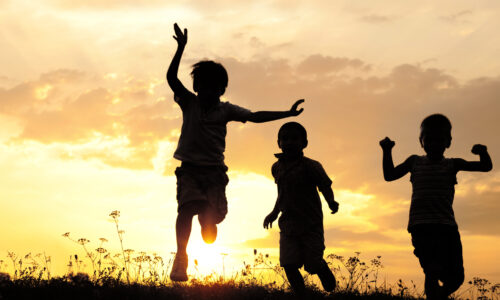The Research
embrella recognizes that research has shown that adversity in childhood has lasting impacts into adulthood and even intergenerational implications. The original Adverse Childhood Experiences (ACEs) survey published in the 1990s, and decades of research since, repeatedly come to the same conclusion: if we can lower childhood adversity, disrupt intergenerational patterns, and create Positive Childhood Experiences (PCEs), children have better outcomes into adulthood.
A study on PCEs in 2019 found that there were seven indicators for possible better outcomes for children as adults. This John Hopkin’s University study of 6,188 adults found the following positives reduce the impact of adversity: the ability to talk with family about feelings, the sense that family is supportive during difficult times, the enjoyment of participation in community traditions, feeling a sense of belonging in high school, feeling supported by friends, having at least two non-parent adults who genuinely cared, and feeling safe and protected by an adult in the home (Bethell et al., 2019).
The P.E.A.C.E. Initiative transforms this research into an actionable response and invites all those that interact with the child welfare community in New Jersey to participate and help shape the future of this community with a goal of lowering childhood adversity and increasing positive childhood experiences.
Reference(s)
Reference Bethell C, Jones J, Gombojav N, Linkenbach J, Sege R. Positive Childhood Experiences and Adult Mental and Relational Health in a Statewide Sample: Associations Across Adverse Childhood Experiences Levels. JAMA Pediatr. 2019;173(11):e193007. doi:10.1001/jamapediatrics.2019.3007
What are ACEs and PCEs?

Adverse Childhood Experiences (ACEs) as a concept is based upon research led by the Center for Disease Control (CDC) and a health insurance agency in the 1990s that provided an ACE survey to 17,000 participants. The results showed that the more adversity in childhood, the greater the increase in risk for health issues in adulthood. Many studies have since found the same results. The original survey broke adversity down into categories that included abuse, neglect, and household challenges. Since the original study, communities across the globe have taken action to lower and prevent ACEs and have discovered it is possible and shared successful, research backed ways to do so. The PEACE Summit is modeled after these practices and is about how we can come together to heal and build resilience amongst the child welfare community throughout New Jersey.
Reference(s)
Anda, R., Porter, L., Martin, K.June 2016. Self-Healing Communities, A Transformational Process Model for Improving Intergenerational Health. Robert Wood Johnson Foundation.
Barilla, T., Porter, L., Ridenour, A., Silveanu, S. 2011. Reducing Adverse Childhood Experiences: Collaboration and Innovation in Washington State. Public Policy. 30-32.

Positive Childhood Experiences (PCEs) decrease the risks for health issues in adulthood. Research has shown there are seven specific PCEs that do this, and these include:
1. The ability to talk with family about feelings.
2. The sense that family is supportive during difficult times.
3. The enjoyment of participation in community traditions.
4. Feeling a sense of belonging in high school.
5. Feeling supported by friends.
6. Having at least two non-parent adults who genuinely cared.
7. Feeling safe and protected by an adult in the home.
Reference(s)
Bethell, C. D., Gombojav, N., & Whitaker, R. C. (2019). Family resilience and connection promote flourishing among US children, even amid adversity. Health Affairs, 38(5), 729-737.

